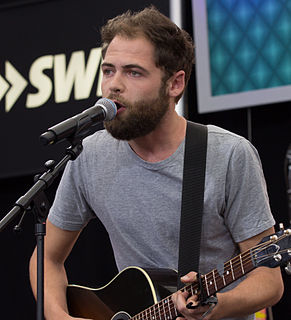Top 73 Quotes & Sayings by Passenger
Explore popular quotes and sayings by an English musician Passenger.
Last updated on December 24, 2024.
Finally I'd found this way where I didn't need a record label; I didn't need to wait for some phone call to tell me, 'Go and do it'. It's like, I'm going to get up with a bag of CDs and an amp and my guitar and make it happen for myself. That was such a liberating feeling, and I think it was the start of everything.
Maybe when I was a kid, when you have those crazy dreams about what music is going to be like - a string of No. 1 hits, a limo, and a fairground in your back garden - and then you start as a musician, and you realize very, very quickly, that's not how things work. So I just let go of all that stuff.




















